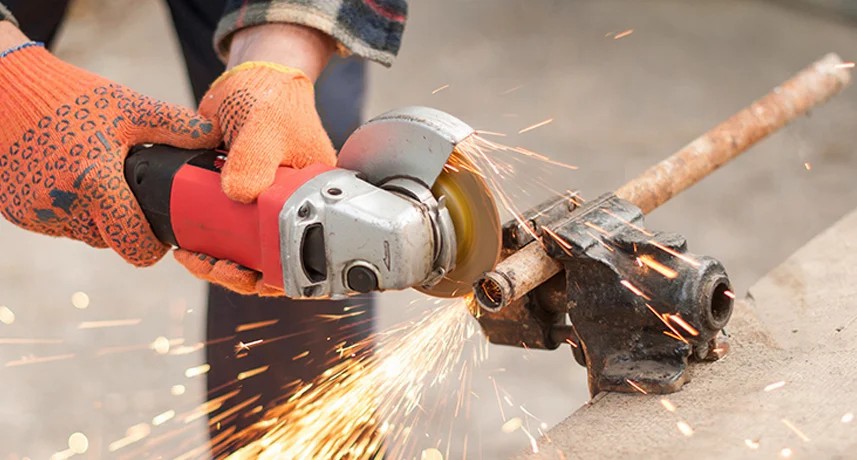Abrasive Wheels Unveiled: Essential Training, Certification, and Safety Insights for Irish Industries
Abrasive wheels are fundamental tools utilized in numerous industries, especially in manufacturing and construction. Understanding their properties, associated risks, and safety precautions is paramount for compliance and workplace safety. This guide serves as your complete resource for everything related to abrasive wheels.
What Are Abrasive Wheels?
Abrasive wheels are rotating discs made from abrasive compounds, primarily used for cutting, grinding, and polishing materials like metal, wood, and ceramics. Their effectiveness stems from the grit embedded within the wheel, which wears away surfaces during operation.
Types of Abrasive Wheels
- Grinding Wheels: Used for grinding metals or for surface finishing.
- Cup Wheels: Ideal for side grinding and surface preparation.
- Flap Discs: Comprised of overlapping layers of coated abrasives; perfect for finishing operations.
- Cut-Off Wheels: Thin wheels designed for slicing through material with minimal waste.
Common Applications of Abrasive Wheels
- Metal fabrication
- Automotive repair
- Construction and masonry work
- Woodworking and furniture manufacturing
Common Risks Associated with Abrasive Wheels
Despite their utility, abrasive wheels pose several risks that can lead to severe injuries. Some of the most common hazards include:
- Wheel Breakage: This can result from excessive pressure or improper mounting.
- Inhalation of Dust: Dust generated can be harmful when inhaled over time.
- Contact Injuries: Improper handling and lack of proper personal protective equipment (PPE) can result in cuts or abrasions.
- Noise Pollution: Prolonged exposure can lead to hearing loss and other health complications.
Legal Requirements and Compliance
In Ireland, there are specific regulations governing the use of abrasive wheels. Companies must comply with the Safety, Health and Welfare at Work Regulations, which entail:
- Conducting risk assessments before using abrasive wheels.
- Ensuring operators are adequately trained.
- Regularly inspecting and maintaining equipment.
The Importance of Abrasive Wheels Training
Obtaining an Abrasive Wheels Certificate significantly enhances workplace safety. Here's how:
- Reduction of Workplace Accidents: Enhanced training equips workers with knowledge related to safe practices, significantly lowering the chances for mishaps.
- Compliance with Legal Standards: Training ensures organizations meet industry regulations, avoiding potential fines or legal actions.
- Career Advancement: Holding a certification opens up better job prospects and positions individuals as knowledgeable professionals in their fields.
Certification Process for Abrasive Wheels
Enrolling in an Abrasive Wheels Course is straightforward. Follow these steps:
- Determine your eligibility and the course that best fits your needs, such as Abrasive Wheels Training Dublin or Abrasive Wheels Certification Cork.
- Complete the training course, which typically includes both theoretical and practical components.
- Pass the final assessment to obtain your Abrasive Wheels Certificate.
Recommended Training Providers in Major Cities
Several reputable training organizations offer Abrasive Wheels courses in Ireland:
- Abrasive Wheels Course Dublin
- Abrasive Wheels Training Cork
- Abrasive Wheels Certification Galway
- Abrasive Wheels Safety Course Limerick
- Abrasive Wheels Certification Waterford
Conclusion
In conclusion, the use of abrasive wheels is accompanied by both benefits and risks. Ensuring proper training and obtaining an Abrasive Wheels Certificate can fundamentally enhance safety and compliance within various industries. By implementing best practices and adhering to legal obligations, businesses across Ireland, including those in Dublin, Cork, Galway, Limerick, and Waterford, can significantly reduce risks associated with abrasive wheel usage.
For more information on courses, visit Abrasive Wheels Training or contact us at [email protected].



 349,500 Offered Certificates
349,500 Offered Certificates
 24/7 Online Training
24/7 Online Training
 Money Back Guarantee
Money Back Guarantee
 Fully Accredited Courses
Fully Accredited Courses
